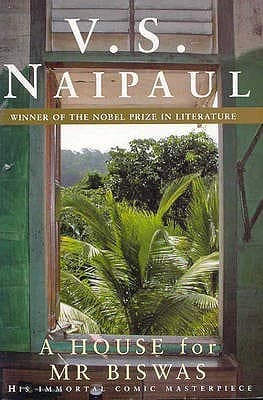
Book Review Summary: A House for Mr Biswas
Introduction
A House for Mr Biswas is a novel by V.S. Naipaul, published in 1961. It tells the story of Mohun Biswas, an Indian man born in Trinidad who spends his life striving for independence. Biswas marries into the Tulsi family and rebels against their control, taking on various occupations in his struggle to weaken their hold over him. The novel explores themes of identity, family dynamics, and the search for a sense of belonging.
About V.S. Naipaul
V.S. Naipaul, born Vidiadhar Surajprasad Naipaul, was a Trinidadian-British novelist, essayist, and journalist. He was born in Trinidad and raised in the Caribbean. Naipaul's writing style is characterized by its wistful humor and his ability to capture the complexities of post-colonial life. He won the Nobel Prize in Literature in 2001 for his significant contributions to literature.
Analysis of Views
- Slow and Ponderous: Some readers found the book slow-paced and challenging to follow, with a lack of clear plot structure. They appreciated the author's prose style but felt that the storytelling was subpar.
- Dysfunctional Family Dynamics: Many readers identified with the themes of dysfunctional family dynamics and the struggles of individuals trying to find their place in life. They appreciated the exploration of power dynamics within families and the portrayal of characters grappling with their desires for independence and belonging.
- Prose Style and Insightful Writing: Readers praised V.S. Naipaul's prose style, describing it as wistful, comic, and insightful. They appreciated the author's ability to elevate mundane details into something profound and sublime. The writing style was seen as a significant strength of the book.
- Cultural Context and Diversity: Readers appreciated the exploration of Trinidadian culture and society, including the influence of Indian traditions on the characters' lives. They found the portrayal of characters from diverse backgrounds and experiences to be relatable and engaging.
- Difficulty in Recommendation: Some readers found it challenging to recommend the book due to its slow pace and lack of clear plot structure. They acknowledged that it requires patience and effort from readers to fully appreciate the book's nuances and insights.
Reasons for Recommendation
- Prose Style: V.S. Naipaul's prose style is widely admired, and readers appreciate the way he elevates mundane details into something profound and sublime. His writing style adds depth and insight to the storytelling.
- Exploration of Themes: The book explores themes that resonate with readers, such as family dynamics, identity, and the search for a sense of belonging. These themes are thought-provoking and encourage reflection on personal experiences.
- Cultural Context: The portrayal of Trinidadian culture and society adds depth to the storytelling, providing readers with a glimpse into a different world and expanding their understanding of diversity and cultural influences.
Reasons for Not Recommendation
- Slow Pace: Some readers found the book slow-paced and challenging to follow due to its lack of clear plot structure. They felt that it took a long time to get through the story, which made it difficult to recommend to others.
- Lack of Action: The book lacks action-packed scenes or fast-paced plot development, which may not appeal to readers who prefer more conventional storytelling elements. The lack of action may make it difficult for some readers to become fully engaged with the story.
Conclusion
A House for Mr Biswas by V.S. Naipaul is a novel that explores themes of identity, family dynamics, and the search for a sense of belonging in post-colonial Trinidad. While some readers found it slow-paced and challenging to follow, others appreciated the author's prose style and insightful writing. The portrayal of Trinidadian culture and society adds depth to the storytelling, making it a thought-provoking read for those interested in exploring diverse perspectives and experiences. While it may not be a page-turner for all readers, those who are willing to invest time in understanding the nuances of the story will find it rewarding.